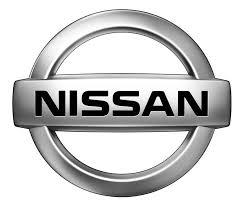Rogue 2WD L4-2.5L (QR25DE) (2008)
/Page-487001.png)
Engine Oil Pressure: Testing and Inspection
OIL PRESSURE CHECK
WARNING:
^
Be careful not to get burn yourself, as engine oil may be hot.
^
When checking engine oil pressure, shift position should be "Parking", and apply parking brake securely.
1. Check the engine oil level. Refer to LU-5, "Inspection". See: Engine Oil/Testing and Inspection
2. Remove engine undercover with power tool.
3. Disconnect harness connector at oil pressure switch (1), and remove oil pressure switch using deep socket (commercial service tool).
2: Oil cooler
<---: Engine front
CAUTION: Never drop or shock oil pressure switch.
4. Install the oil pressure gauge [SST: ST25051001 (J25695-1)] (A) and hose [SST: ST25052000 (J25695-2)] (B).
5. Start the engine and warm it up to normal operating temperature.
6. Check the engine oil pressure with engine running under no-load.
NOTE: When the engine oil temperature is low, the engine oil pressure becomes high.
Engine oil pressure: Refer to LU-14, "Engine Oil Pressure". See: Specifications
If difference is extreme, check engine oil passage and oil pump for engine oil leakage.
7. After the inspections, install oil pressure switch as follows:
a. Remove old liquid gasket adhering to oil pressure switch and the mating surface.
b. Apply liquid gasket and tighten oil pressure switch to the specification. Use Genuine RTV Silicone Sealant or equivalent.
Tightening torque: Refer to LU-9, "Exploded View". See: Oil Cooler/Service and Repair
c. After warming up engine, check that there is no leakage of engine oil with running engine.
